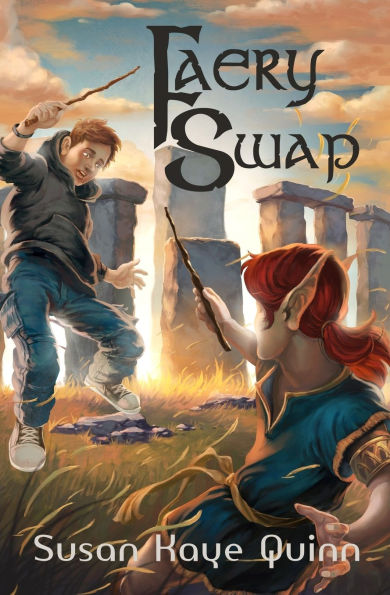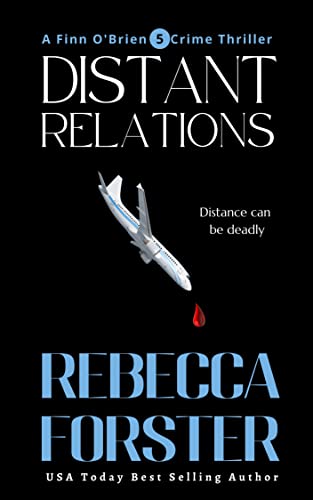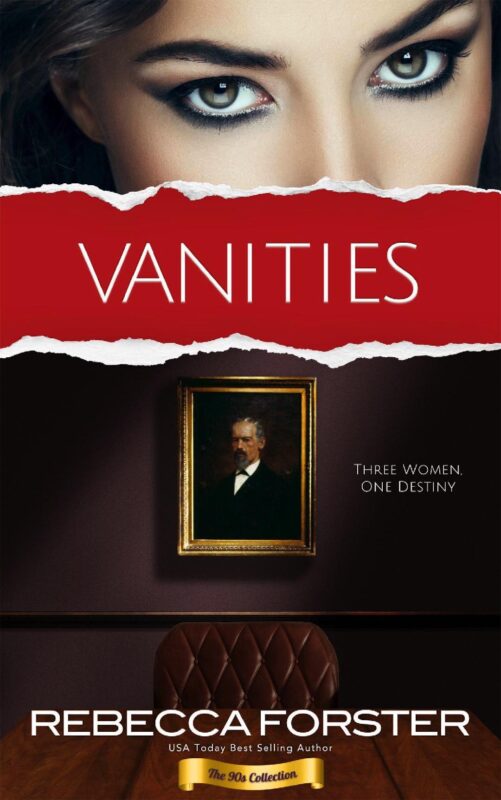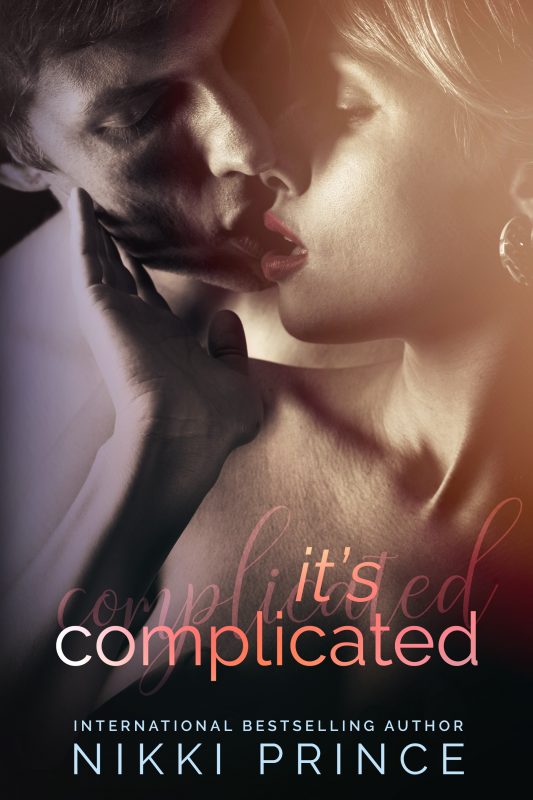Babies, Books and Autumn?
October 10, 2021 by Tari Jewett in category Charmed Writer by Tari Lynn Jewett tagged as babies, booksIt’s October! Autumn is my favorite time of the year. I love the crisp autumn air, and the anticipation of the holiday season. This year is especially special. Our new grandson arrived and will experience his first autumn, first Halloween, first Thanksgiving and for Christmas. I hope you’ll forgive my absence the last few months, we’ve been totally captivated by Milo.
Milo Porter was born on April 9, to my oldest son Gerrod and daughter in law Kristina. And he has absolutely stolen my heart. Did I mention that he was named for me? Porter is his middle name, and my maiden name. I couldn’t understand why I couldn’t get a full name from my son before he was born, then when they were leaving the hospital (because of the pandemic we couldn’t be there) he sent me a picture of the discharge papers, and there was his name. Okay, I might have cried (sobbed). They named their baby for me.
He’s beautiful, charming and has both GrandPaul and I wrapped around his little finger.

We all read to him, but I think the first to read a book to Milo was his big brother Isaac. Yes, this is a family of book lovers.

I do have some writing news. #SilverBracelets Book 2 in my #HermosafortheHolidays series is finally out in paperback. We had some glitches along the way, but it’s available on Amazon, and I’m so excited to finally have print copies!
And if you haven’t read #HauntedHermosa yet, this is the time! It’s a sweet little Halloween romcom. It’s available in ebook on Amazon.

I’m off to convince my son that Grandma needs zoom time with Milo and Isaac.
Happy October everyone!
Veronica Jorge: October Featured Author
October 7, 2021 by Veronica Jorge in category Apples & Oranges by Marianne H. Donley, Featured Author of the Month tagged as Featured author, Reviewed by Veronica Jorge, Veronica Jorge, Write from the heart

Manager, Educator, and former High School Social Studies teacher, Veronica credits her love of history to the potpourri of cultures that make up her own life and to her upbringing in diverse Brooklyn, New York.
Her Work in Progress is a Young Adult Novel based on a search into her ethnic roots that explores identity, belonging, and self-discovery. Her genres of choice are historical fiction, where she always makes new discoveries, literary works because she loves beautiful writing, and children’s picture books because there are so many wonderful worlds yet to be imagined and visited.
She currently resides in Macungie, PA., but she’s still a Brooklyn girl at heart. How sweet it is!
Veronica’s story “Fiona Malone’s Fesh,” is featured in the Fall 2021 Issue of Bethlehem Writers Roundtable.
In addition to her fiction, she has a monthly column, Write from the Heart, here on A Slice of Orange where she writes about writing, life and does book reviews.
Connect with her on Facebook @VeronicaJorgeauthor
Books Reviewed by Veronica
Glamor Girl Blitz
October 6, 2021 by marianne h donley in category Apples & Oranges by Marianne H. Donley, Rabt Book Tours tagged as @RABTBookTours, Glamor Girl, historical fiction, The Fourniers, Vera Jane Cook
Date Published: 10-06-2021
Publisher: Indies United
Escaping from her childhood, Sheela, flees her aunt’s motel where she is forced to work as a cleaning maid and provide ‘favors’ for wealthy guests and winds up in Miami in Kit Malone’s fancy brothel. Beautiful and stately, Sheela becomes a high-class prostitute, a millionaire’s mistress and a Billy Rose showgirl. When she meets the love of her life in Manhattan, the charming but naïve Julius Clark, life blossoms into something both frightening and titillating. But when Sheela gives birth to her daughter, Fanny, it is this shadowy and stormy relationship that alters the course of both of their destinies and defines their future.
About the Author
Vera Jane Cook was born in New York City and has been a city girl ever since. As an only child, she turned to reading novels at an early age and was deeply influenced by an eclectic group of authors. Before Jane became a writer, she worked in the professional theatre and appeared on television, in regional theatre, film and off Broadway.
At the age of fifty Jane began to write novels. Some of her titles include Dancing Backward in Paradise, winner of an Eric Hoffer Award for publishing excellence and an Indie Excellence Award for notable new fiction, 2007. The Story of Sassy Sweetwater and Dancing Backward in Paradise received 5 Star ForeWord Clarion Reviews and The Story of Sassy Sweetwater was named a finalist for the ForeWord Book of the Year Awards. She has published in ESL Magazine, Christopher Street Magazine and has written early childhood curriculum for Weekly Reader and McGraw Hill.
Jane still lives on the upper west side of Manhattan right near Riverside Park, where she takes her delightful dogs, Peanut and Carly, for a jog,. She comes home to her spouse of thirty years and her two cats, Sassy and Sweetie Pie.
Contact Links
Purchase Links
Are You Leaving Money On The Table?
October 5, 2021 by Tracy Reed in category Writing tagged as Goal Setting, How to Make a Living with Your Writing, Joann Penn, Productivity for Authors, writing career
Happy October and Fall.
I recently listened to Joanna Penn’s How To Make A Living With Your Writing and Productivity For Authors. I highly recommend both books, no matter what stage or level you are in your writing career.
I have been a published author since December 2014. However, it wasn’t until the past few years that I realized I wasn’t a very good steward or caretaker of my writing career. I often tell people I’ve written several books. Instead, I should have been saying, “I’m an author as well as a small business owner.”
Listening to Joanna’s books just emphasized my poor caretaker skills. As writers, we’re storytellers first, then business people. However, if we don’t understand the business side, we’re simply hobbyist. I don’t know about you, but I want to be a storyteller who gets paid.
Let me take a few moments to chastise myself. I’ve not been as focused as I could be. I set goals and fall short. I used to create a production schedule, which I probably should go back to. I tried a Kanban board system in 2019. I liked it, but then COVID hit and I didn’t give Kanban a second thought. I tried sprinting and writing blocks, but failed to stay consistent. I’m also guilty of not having a daily writing time. Instead, I’d wait for the muse to visit me. I’m also guilty of letting distractions run rampant in my life.
It was sort of funny how I came to listen to Joanna’s books. I was sitting in the drive through at Raisin’ Cane waiting to order dinner. Don’t judge. I’m a healthy eater, but a girl likes some chicken tenders and fries every now and then. If you know anything about Raisin’ Cane, the line is always long. I didn’t want to listen to music, and I had just finished the Kevin Kwan Crazy Rich Asians series . . . the books are so much better than the movie. I was going to listen to a podcast and saw Joanna Penn’s name and thought, why not read or listen to one of her books. I downloaded How To Make A Living With Your Writing. There’s so much good information about goal setting and time management.
Joanna asked a question that really stood out: Are you were leaving money on the table? I had no idea what she was talking about, because there was no way I could be guilty of such a thing. I replayed the chapter so I could catch all of her statement. I was shocked to discover she was talking about the different ways to monetize your book. She listed the many formats she uses for her books: ebook, paperback, hardcover, large print paperback and audio.
Hold up. I know about audio, I’m not there yet. So I gave myself a pass. However, I was guilty of not doing half of the other formats. When I publish a book, I generally only do ebook and paperback. I thought about doing a few limited edition hardcovers for some of my books, but hadn’t made the move. For large print paperbacks, I have to be honest, it never occurred to me to offer them, although some readers asked me about large print.
Joanna shared that her large print paperbacks account for a huge chunk of her print sales. My mind raced as she spoke and then she said the magic words . . . “Formatting is easy with Vellum.” I was hooked. Then she said there was a large market for large print paperback. I went to Amazon and found several large print romance books available.
Back to my question, are you leaving money on the table? Did you know large print books fetch a higher price for very little work? I created a large print version of The Good Girl Part One. I love how it turned out, but there were two minor issues . . . I forgot to include my website on the back cover and I had the wrong cover dimensions. I made the corrections and put my first large print paperback up for sale. I’m also strongly considering large print hardcover. Did you know there are still quite a few people who like hardcover books? I may not be doing audio books yet, but I can expand my revenue streams by offering two versions of the large print format: paperback and hardcover.
So here are the revenue streams for my books: ebook, regular print paperback, large print paperback, regular hardcover and large print hardcover.
Let’s take a deeper look at the proposed revenue streams (before royalty split) for The Good Girl Part One.
ebook – Free
Regular Print Paperback – $7.99
Large Print Paperback – $8.99
Regular Hardcover – $20.99
Large Print Hardcover – $25.99
The hardcover prices are estimates. Looking at the possibilities, means I’ve been leaving $55.97 (before the royalty split) on the table, because I’ve only been doing ebook and regular paperback.
Imagine if I sold ten of each of these formats for this book daily. (Use your royalty split to calculate a more accurate number.) Whatever number you came up with is correct and shocking. Now multiply those numbers by your entire catalog. I did my catalog number based on my royalty split. I wanted to kick myself.
Of course, hardback copies may not be for you. But why not offer a few as collectibles–that’s still a nice piece of money. Here’s another thought, maybe you do a series hardcover. I’ve seen them on Amazon and they fetch a nice sum. The possibilities are endless.
I hear you saying, “What about audio?” I’m not ignoring audio, it’s just not time for me yet. My plan is to do audio in 2023, but until then, I’m adding large print paperback, hardcover and large print hardcover to my inventory.
So I’ll ask again, How much money have you been leaving on the table?
See you next month.
~Tracy
Books by Tracy Reed
Starting a Novel Series with a Partner: The Planning by E. J. Williams
October 3, 2021 by Janet Elizabeth Lynn and Will Zeilinger in category Partners in Crime by Janet Elizabeth Lynn & Will Zeilinger, Starting a Novel Series with a Partner by E. J. Williams tagged as E.J. Williams, novels, Planning, Writing with a Partner
My husband, Will Zeilinger, and I co-write the thrillers of INTERNATIONAL MYSTERY SERIES, as E. J. Williams. Our tales transport the reader from 1962 Southern California to various international locales. In the first new book of the series, STONE PUB, we find ourselves in County Cork, Ireland.
Planning the series, then planning the individual novel in the series takes a great deal of time. It is so easy to get stuck on one idea and not move ahead. The two of us had MANY ideas we threw around.
So, we implemented deadlines—not just for writing (which needs to happen) but at the planning stage … making decisions.
For example, “By the next meeting follow, we will decide on:”
1) Romantic scene, when, where, and with who.
2) Car chase: where will it take place and who is chasing whom, etc. Once we agree on these details, one of us writes the scene, and the other adds to it.
Beware of analysis/paralysis. We knew of a co-writing team who couldn’t agree on the names of the characters, not just one but all. Their writing ground to a halt for months!
Remember that your mutual goal is to write a good story.
The takeaway: When writing together, plan your approach.
Remember… the crucial thing is to write a good story. So, stay tuned … there is more to come.
STONE PUB is the first in the series, and yes … we are still married!
Websites:
Some of Janet’s and Will’s Novels
Affiliate Links
A Slice of Orange is an affiliate with some of the booksellers listed on this website, including Barnes & Nobel, Books A Million, iBooks, Kobo, and Smashwords. This means A Slice of Orange may earn a small advertising fee from sales made through the links used on this website. There are reminders of these affiliate links on the pages for individual books.
Search A Slice of Orange
Find a Column
Archives
Featured Books
FAERY SWAP
Warrior faery princes can be very stubborn. Especially when they possess your body.
More info →DISTANT RELATIONS
Finn's life is in the hands of a distant and deadly relation.
More info →IT’S COMPLICATED
Ashton Locke has had a thing for Keiko Jarrett since college.
More info →NUMB
Will greed prevail, landing the Vitality Gem in the hands of an unpure soul or will Johnny Tanzer stand in his way with the wrath of the Gods?
More info →Newsletter
Contributing Authors
Search A Slice of Orange
Find a Column
Archives
Authors in the Bookstore
- A. E. Decker
- A. J. Scudiere
- A.J. Sidransky
- A.M. Roark
- Abby Collette
- Alanna Lucus
- Albert Marrin
- Alice Duncan
- Alina K. Field
- Alison Green Myers
- Andi Lawrencovna
- Andrew C Raiford
- Angela Pryce
- Aviva Vaughn
- Barbara Ankrum
- Bethlehem Writers Group, LLC
- Carol L. Wright
- Celeste Barclay
- Christina Alexandra
- Christopher D. Ochs
- Claire Davon
- Claire Naden
- Courtnee Turner Hoyle
- Courtney Annicchiarico
- D. Lieber
- Daniel V. Meier Jr.
- Debra Dixon
- Debra H. Goldstein
- Debra Holland
- Dee Ann Palmer
- Denise M. Colby
- Diane Benefiel
- Diane Sismour
- Dianna Sinovic
- DT Krippene
- E.B. Dawson
- Emilie Dallaire
- Emily Brightwell
- Emily PW Murphy
- Fae Rowen
- Faith L. Justice
- Frances Amati
- Geralyn Corcillo
- Glynnis Campbell
- Greg Jolley
- H. O. Charles
- Jaclyn Roché
- Jacqueline Diamond
- Janet Lynn and Will Zeilinger
- Jaya Mehta
- Jeannine Atkins
- Jeff Baird
- Jenna Barwin
- Jenne Kern
- Jennifer D. Bokal
- Jennifer Lyon
- Jerome W. McFadden
- Jill Piscitello
- Jina Bacarr
- Jo A. Hiestand
- Jodi Bogert
- Jolina Petersheim
- Jonathan Maberry
- Joy Allyson
- Judy Duarte
- Justin Murphy
- Justine Davis
- Kat Martin
- Kidd Wadsworth
- Kitty Bucholtz
- Kristy Tate
- Larry Deibert
- Larry Hamilton
- Laura Drake
- Laurie Stevens
- Leslie Knowles
- Li-Ying Lundquist
- Linda Carroll-Bradd
- Linda Lappin
- Linda McLaughlin
- Linda O. Johnston
- Lisa Preston
- Lolo Paige
- Loran Holt
- Lynette M. Burrows
- Lyssa Kay Adams
- Madeline Ash
- Margarita Engle
- Marguerite Quantaine
- Marianne H. Donley
- Mary Castillo
- Maureen Klovers
- Megan Haskell
- Melanie Waterbury
- Melisa Rivero
- Melissa Chambers
- Melodie Winawer
- Meriam Wilhelm
- Mikel J. Wilson
- Mindy Neff
- Monica McCabe
- Nancy Brashear
- Neetu Malik
- Nikki Prince
- Once Upon Anthologies
- Paula Gail Benson
- Penny Reid
- Peter J Barbour
- Priscilla Oliveras
- R. H. Kohno
- Rachel Hailey
- Ralph Hieb
- Ramcy Diek
- Ransom Stephens
- Rebecca Forster
- Renae Wrich
- Roxy Matthews
- Ryder Hunte Clancy
- Sally Paradysz
- Sheila Colón-Bagley
- Simone de Muñoz
- Sophie Barnes
- Susan Kaye Quinn
- Susan Lynn Meyer
- Susan Squires
- T. D. Fox
- Tara C. Allred
- Tara Lain
- Tari Lynn Jewett
- Terri Osburn
- Tracy Reed
- Vera Jane Cook
- Vicki Crum
- Writing Something Romantic
Affiliate Links
A Slice of Orange is an affiliate with some of the booksellers listed on this website, including Barnes & Nobel, Books A Million, iBooks, Kobo, and Smashwords. This means A Slice of Orange may earn a small advertising fee from sales made through the links used on this website. There are reminders of these affiliate links on the pages for individual books.





























































































































